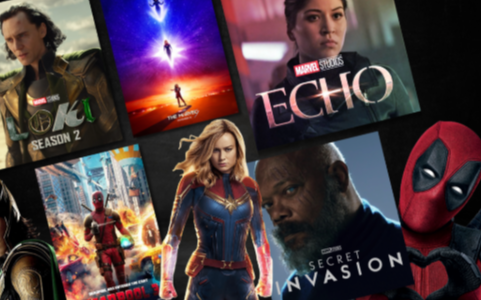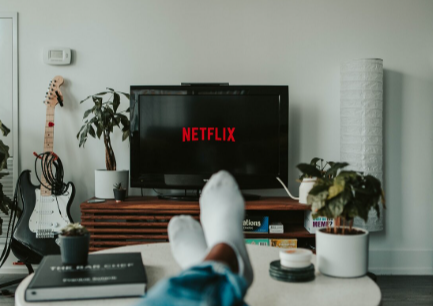The Rise of Social Media Influencers in Entertainment Industry

The rise of social media influencers has dramatically reshaped the entertainment industry. These individuals, often seen as more relatable than traditional stars, have harnessed platforms like Instagram and TikTok to engage directly with audiences. This shift has not only altered how content is produced but has also transformed marketing strategies. As brands increasingly collaborate with influencers, the question arises: how will this evolving dynamic continue to redefine celebrity culture and audience engagement?
The Evolution of Influencer Culture
As the digital landscape evolved, so too did the culture of influencers within the entertainment industry, reflecting broader societal shifts and technological advancements.
Increasingly, audiences sought influencer authenticity, craving genuine connections rather than polished personas. This transition marked a significant cultural shift, where influencers emerged as relatable figures who could communicate directly with their followers.
The rise of platforms like Instagram and TikTok facilitated this evolution, allowing influencers to showcase their lives and opinions in real-time. As they navigated trends and societal changes, these influencers adapted their content to resonate with diverse audiences, ultimately reshaping the entertainment landscape.
Their ability to engage authentically underscored the importance of relatability in a world where individual voices now hold significant influence over public perception and consumer behavior.
Impact on Traditional Marketing Strategies
Disrupting traditional marketing strategies, social media influencers have redefined how brands connect with consumers in the entertainment industry.
By leveraging influencer partnerships, brands now engage in more authentic and targeted promotions, sidestepping the often impersonal nature of traditional advertising. This shift emphasizes relatability over celebrity endorsement, enhancing marketing effectiveness as influencers resonate with niche audiences.
As consumers increasingly seek genuine connections, brands recognize the power of influencers to deliver messages that feel organic rather than forced. Consequently, marketing budgets are reallocating, prioritizing influencer collaborations that yield measurable results.
This transformation not only empowers influencers but also compels brands to innovate their approaches, embracing a more dynamic and free-spirited marketing landscape that aligns with contemporary consumer desires.
Building Authentic Connections With Audiences
While traditional marketing often relies on polished imagery and scripted messages, social media influencers are reshaping the landscape by prioritizing authenticity and relatability.
By utilizing innovative engagement tactics, these influencers foster genuine connections with their audiences, which in turn cultivates deep audience trust. Unlike conventional advertising, which can feel impersonal, influencer content often reflects personal experiences, making it resonate on a more intimate level.
This shift encourages brands to adopt a more transparent approach, recognizing that consumers value honesty over perfection. As influencers share their stories and interact candidly with followers, they create a sense of community, encouraging audience members to feel seen and heard.
Ultimately, this new paradigm empowers both influencers and their audiences to embrace their individuality.
The Role of Influencers in Content Creation
Influencers have emerged as pivotal figures in the content creation landscape, leveraging their unique voice and perspective to craft engaging narratives that resonate with their audiences.
Through influencer collaboration, brands can channel authentic storytelling that feels organic rather than forced, fostering a genuine connection with consumers. This authenticity is crucial in an age where audiences crave transparency and relatability.
Influencers often curate content that aligns with their values, allowing for richer and more relevant experiences. As they navigate various platforms, they adapt trends to fit their personal style, ensuring that content remains fresh and engaging.
Ultimately, influencers serve as bridges between brands and audiences, shaping the way entertainment is consumed and redefining content creation in the digital age.
Future Trends in the Entertainment Industry
What new dimensions might the entertainment industry explore as technology continues to evolve?
The future promises an exciting convergence of virtual reality and interactive experiences, reshaping how audiences engage with content. As VR technology becomes more accessible, creators will harness its potential to craft immersive narratives, allowing viewers to step into stories like never before.
This shift towards interactivity empowers audiences to influence plotlines, fostering a deeper connection with characters and settings. Additionally, social media influencers will play a crucial role in navigating these new landscapes, guiding fans through personalized experiences.
As the lines between creator and consumer blur, the entertainment industry may redefine storytelling, embracing a dynamic model that celebrates freedom, creativity, and community engagement in unprecedented ways.
Conclusion
As the sun sets on traditional celebrity culture, a new dawn breaks with social media influencers leading the charge. They weave vibrant tapestries of authenticity and relatability, captivating audiences in ways previously unimagined. This shift not only redefines marketing strategies but also reshapes the very fabric of content creation. In this dynamic landscape, the stage is set for influencers to continue their ascent, illuminating the path forward in an entertainment industry hungry for genuine connections.




